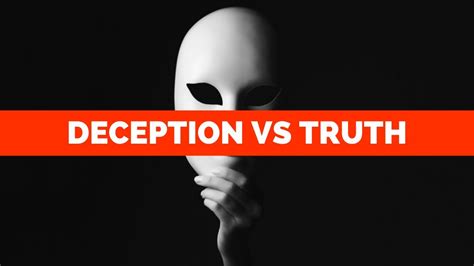

Can We Trust the Media 2025: Truth vs. Deception
Introduction

The media has become an integral part of our lives, shaping our understanding of the world and influencing our decisions. However, the veracity and trustworthiness of the information presented by the media have come under increasing scrutiny in recent years. This essay will explore the complex relationship between trust and the media, examining factors that contribute to both media credibility and skepticism.
Factors Contributing to Media Credibility
-
Objectivity: Impartiality and avoidance of bias are fundamental principles of credible journalism. Media outlets that present facts without distortion or manipulation earn greater trust from their audiences.
-
Expertise: The presence of qualified and knowledgeable journalists ensures that information is accurate and reliable. Media sources with a track record of accurate reporting are more likely to be trusted.
-
Transparency: Openness about funding sources, editorial policies, and potential conflicts of interest can enhance media credibility by fostering a sense of authenticity.
-
Diversity of Perspectives: A broad representation of viewpoints allows audiences to assess different perspectives and come to informed conclusions, increasing trust in the media as a whole.
Factors Contributing to Media Skepticism
-
Sensationalism: The pursuit of attention-grabbing headlines and oversimplifications can undermine the accuracy and objectivity of reporting, leading to distrust.
-
Political Bias: Close ties between media outlets and political parties or ideologies can create a perception of bias, eroding trust among audiences with opposing viewpoints.
-
Agenda-Setting: The ability of the media to influence public opinion by framing issues and highlighting certain perspectives can raise concerns about media manipulation and bias.
-
Corporate Influence: Ownership of media outlets by large corporations can create the perception that reporting is influenced by commercial interests, damaging trust in media objectivity.
The Impact of Social Media
The advent of social media has added a new dimension to the trust equation.
- Increased Accessibility: Social media provides individuals with direct access to information and perspectives from a wider range of sources, diversifying the media landscape.
- Echo Chambers: The tendency of individuals to connect with like-minded others on social media can create echo chambers, where users are exposed to a limited range of perspectives, reinforcing existing beliefs and potentially reducing trust in dissenting views.
- Misinformation and Disinformation: The ease with which false or misleading information can spread on social media platforms has heightened concerns about media credibility and trustworthiness.
Building Trust in the Media
Restoring public trust in the media requires a concerted effort from both media organizations and audiences.
Media Organizations:
- Adhere to Ethical Standards: Upholding principles of accuracy, objectivity, and transparency is essential for building trust.
- Invest in Quality Journalism: Employing experienced and skilled journalists, conducting thorough research, and fact-checking are key to producing credible content.
- Embrace Diversity: Creating inclusive newsrooms and platforms that amplify diverse perspectives fosters a sense of fairness and representativeness, increasing trust.
- Foster Accountability: Mechanisms for holding media outlets accountable for inaccurate reporting or biased coverage can help maintain credibility.
Audiences:
- Critical Consumption: Developing critical thinking skills and evaluating information from a variety of sources is crucial for discerning reliable information.
- Media Literacy: Understanding how the media operates, its biases, and the techniques used to persuade can help audiences make more informed judgments about media content.
- Support Independent Media: Supporting non-profit or independent media organizations that prioritize public service journalism can counteract the influence of corporate-owned outlets.
- Provide Feedback: Engaging with media outlets through feedback mechanisms, such as reader surveys or social media comments, can provide valuable insights and hold outlets accountable.
Conclusion
The question of whether we can trust the media is a complex one that involves a nuanced interplay of credibility and skepticism. By addressing factors that contribute to both trust and distrust, media organizations and audiences can work together to rebuild and strengthen the relationship between the media and the public. Trust is essential for a well-informed and engaged society, and it is in the best interest of both the media and its consumers to foster an environment where credible information is valued and disseminated without fear or favor.










